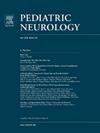Unforeseen Positive Impacts of a Neonatal Encephalopathy Teleconsultation Program: Insights From Clinicians Practicing in a Rural State
IF 2.1
3区 医学
Q2 CLINICAL NEUROLOGY
引用次数: 0
Abstract
Background
Virtual triaging using telemedicine has been associated with improved communication, efficiency and accessibility, and reduced costs of care delivery. The Maine Neonatal Encephalopathy Teleconsultation (Maine NET) Program was developed to provide these advantages to neonates in rural areas. In previous work, we discussed improved resource utilization, collaborative decision-making, communication, and continuity of care associated with Maine NET. Herein, we examine additional, unexpected themes related to the psychosocial impacts of Maine NET on participating clinicians.
Methods
We performed semistructured interviews from April 2018 to October 2022 with 16 clinicians representing all hospitals participating in Maine NET. We utilized hybrid thematic analysis to assess themes from transcribed interviews.
Results
Several themes of Maine NET were identified in this analysis, including reduced feelings of isolation, alleviation in intensity of time pressure, heightened stress and trauma related to caring for the newborns requiring resuscitation, increased equity and access to subspecialty care, and opportunities for education. One clinician stated that “…it's lonely at the top [when] you're in a rural community hospital running the show and it's always scary to make these big decisions…so having somebody share that … is super helpful for moral support.”
Conclusions
The Maine NET Program provided several unanticipated benefits to both patients and the clinicians caring for them. As rural states increasingly face health care workforce shortages, availability of teleconsultation may support physician recruitment and retention in low delivery volume hospitals as it improves care delivery and facilitates connection to pediatric specialists, reducing isolation and increasing opportunities for ongoing education.
新生儿脑病远程会诊计划的不可预见的积极影响:从临床医生在农村国家实践的见解
使用远程医疗的虚拟分诊与改善沟通、效率和可及性以及降低医疗服务成本有关。缅因州新生儿脑病远程咨询(Maine NET)项目的发展就是为了给农村地区的新生儿提供这些优势。在之前的工作中,我们讨论了与缅因网络相关的资源利用、协作决策、沟通和护理连续性的改进。在此,我们研究额外的,意想不到的主题与缅因网络对参与临床医生的心理社会影响。方法2018年4月至2022年10月,我们对代表缅因州网络所有医院的16名临床医生进行了半结构化访谈。我们使用混合主题分析来评估采访记录中的主题。结果在本分析中确定了缅因网络的几个主题,包括减少孤立感,减轻时间压力强度,与护理需要复苏的新生儿相关的压力和创伤,增加公平性和获得亚专科护理的机会,以及接受教育的机会。一位临床医生说:“当你在农村社区医院工作时,高层是很孤独的,做出这些重大决定总是很可怕……所以有人分享这些……对精神上的支持非常有帮助。”缅因网络项目为患者和护理他们的临床医生提供了一些意想不到的好处。由于农村各州日益面临卫生保健人力短缺的问题,远程会诊的提供可能有助于在产生量小的医院招聘和保留医生,因为它改善了医疗服务,促进了与儿科专家的联系,减少了隔离,增加了接受持续教育的机会。
本文章由计算机程序翻译,如有差异,请以英文原文为准。
求助全文
约1分钟内获得全文
求助全文
来源期刊

Pediatric neurology
医学-临床神经学
CiteScore
4.80
自引率
2.60%
发文量
176
审稿时长
78 days
期刊介绍:
Pediatric Neurology publishes timely peer-reviewed clinical and research articles covering all aspects of the developing nervous system.
Pediatric Neurology features up-to-the-minute publication of the latest advances in the diagnosis, management, and treatment of pediatric neurologic disorders. The journal''s editor, E. Steve Roach, in conjunction with the team of Associate Editors, heads an internationally recognized editorial board, ensuring the most authoritative and extensive coverage of the field. Among the topics covered are: epilepsy, mitochondrial diseases, congenital malformations, chromosomopathies, peripheral neuropathies, perinatal and childhood stroke, cerebral palsy, as well as other diseases affecting the developing nervous system.
 求助内容:
求助内容: 应助结果提醒方式:
应助结果提醒方式:


